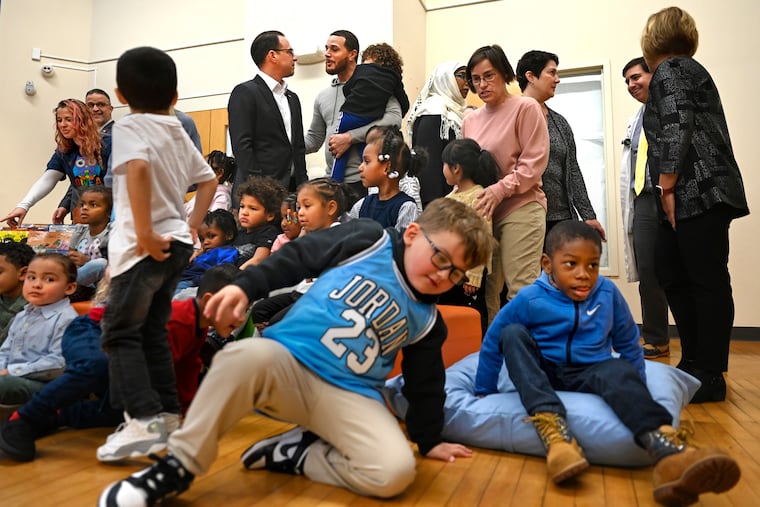A new Senate bill would let parents collect up to $8,000 in tax credits for day care, childcare, and nannies
The bill, sponsored by Pennsylvania Sen. Bob Casey would increase the maximum credit a family can receive to $4,000 per child, capped at $8,000 in tax credits overall.

Rising day care costs could become more affordable under a new bill being introduced in the Senate on Wednesday.
The Child and Dependent Care Tax Credit Enhancement Act, written and sponsored by Sen. Bob Casey (D., Pa), would allow working parents to recoup up to half of childcare costs, whether from day care centers, after-school programs, summer camps, or less formal arrangements, such as nannies, totaling up to $16,000.
It would increase the maximum credit a family can receive for care for a child or dependent person to $4,000 per child, capped at $8,000 in tax credits overall. Under Casey’s proposal, families making more than $400,000 would phase out of childcare tax credit eligibility.
The current credit limits recipients to $600 per child or $1,200 per family.
Not to be confused with the more general child tax credit, currently being debated in Congress, Casey’s bill proposes a credit specifically targeting childcare costs.
“We must do everything in our power to put affordable child care within reach for every family, as we did when we expanded tax credits to help families pay for child care in 2021,” Casey said.
“Child care costs were too high for too many families well before the pandemic and that problem isn’t going away unless we take action to lower costs. It’s long past time to step up and make the child care tax credit available to everyone at the actual cost of child care today.”
Casey, who has represented Pennsylvania in the Senate since 2007, has often prioritized policies related to on parent, family, and senior issues.
His latest bill comes as he faces what could be a tough reelection campaign. And the topic of childcare is likely a popular one to run on as studies show childcare costs have spiked, with families spending a national average of about $20,000 a year and low-income families spending a third of their income on the expense. The tax credit would also cover caregivers who provide care to dependents, such as elderly parents or spouses. In Pennsylvania, one in five adults is a caregiver.
It would also make the credit accessible to people making less than $40,000 a year who previously made too little to qualify.
More money for childcare
Childcare and dependent tax credit limits have fluctuated nationally since the American Rescue Plan increased what families could receive in 2021. Casey’s bill would restore the childcare tax credit to those 2021 levels, when the average credit received nearly quadrupled from about $593 to $2,158 per family.
When the enhanced credit sunset in 2022, some states stepped in to make up the difference to families.
Pennsylvania increased its state childcare tax credit to help families shoulder the drop in the federal program. The state credit initially matched as much as 30% of the federal credit. Gov Josh Shapiro expanded the credit in June to match as much as 100%.
Families qualify for both the state and federal credit. Pennsylvania’s bill expanding the state credit is tied to 2023 federal levels so it would not automatically increase if Casey’s bill passed.
Casey’s bill is cosponsored by two Democrats and it’s unclear whether it will get bipartisan support.
Republican state lawmakers in Pennsylvania worked with Democrats to expand the childcare credit here.
Casey’s Republican opponent, Dave McCormick, did not answer whether he’d support the bill but his campaign argued its timing was politically advantageous and blasted Casey for supporting bills in Congress that raised taxes.
“He’s only introducing legislation now because he’s up for reelection. Pennsylvania families deserve better than years of failed leadership,” McCormick spokesperson Elizabeth McGregory said in a statement.
Casey’s bill also proposes indexing the credit for inflation.
One thing it would not do is directly grant money to childcare centers, which have been shuttering at an alarming rate in Pennsylvania, since onetime funding dried up. Nearly 3,000 Pennsylvania childcare programs are expected to close, according to research from the Century Foundation, which the nonprofit said could mean the loss of more than 11,000 childcare jobs, and more than 150,000 children will lose childcare.
Giving parents more money to spend on childcare could indirectly help day care centers, though, and a number of day care companies back the bill.